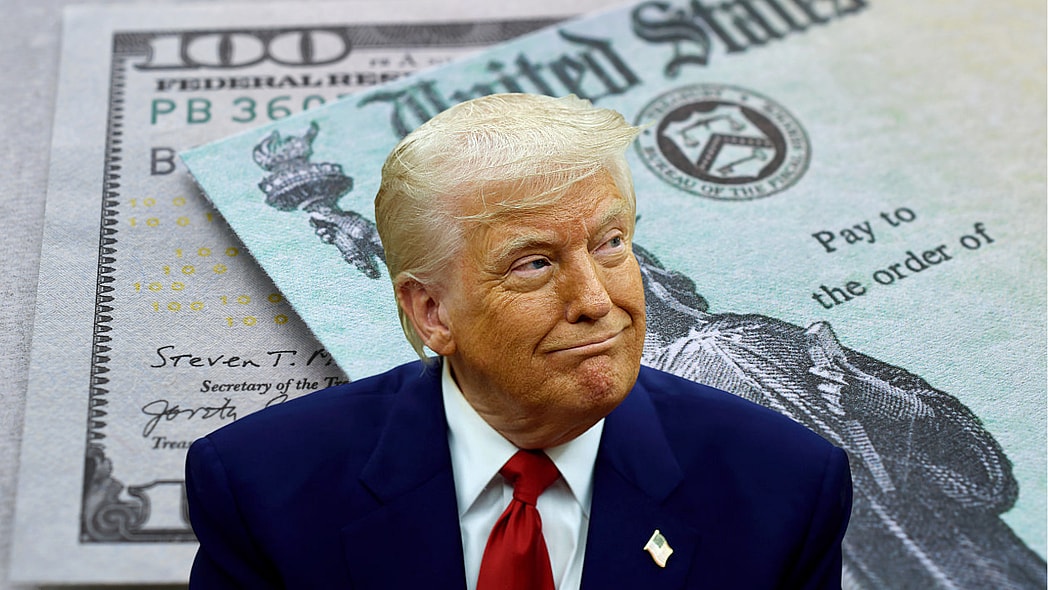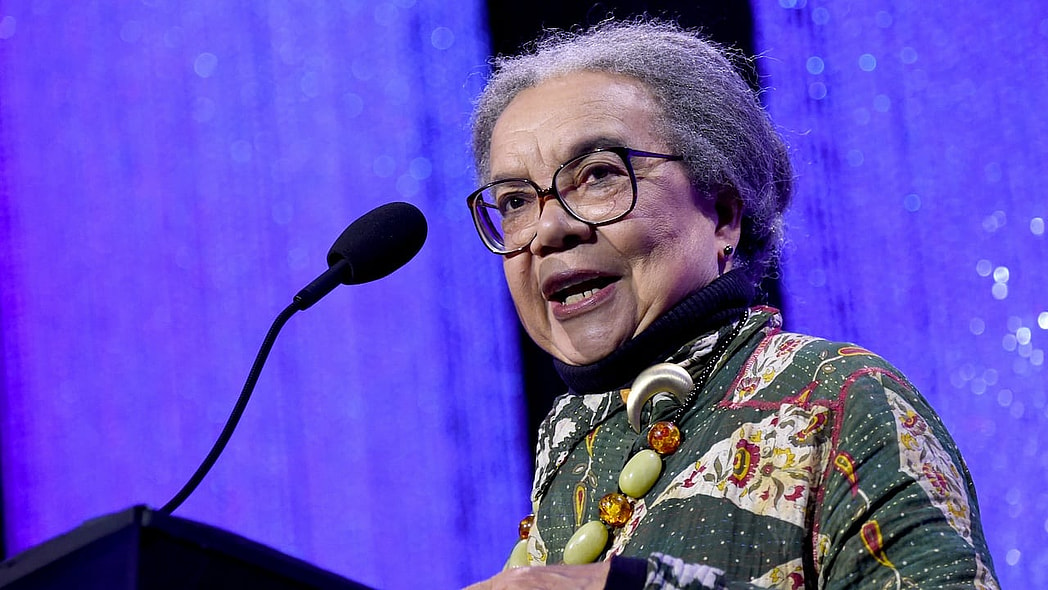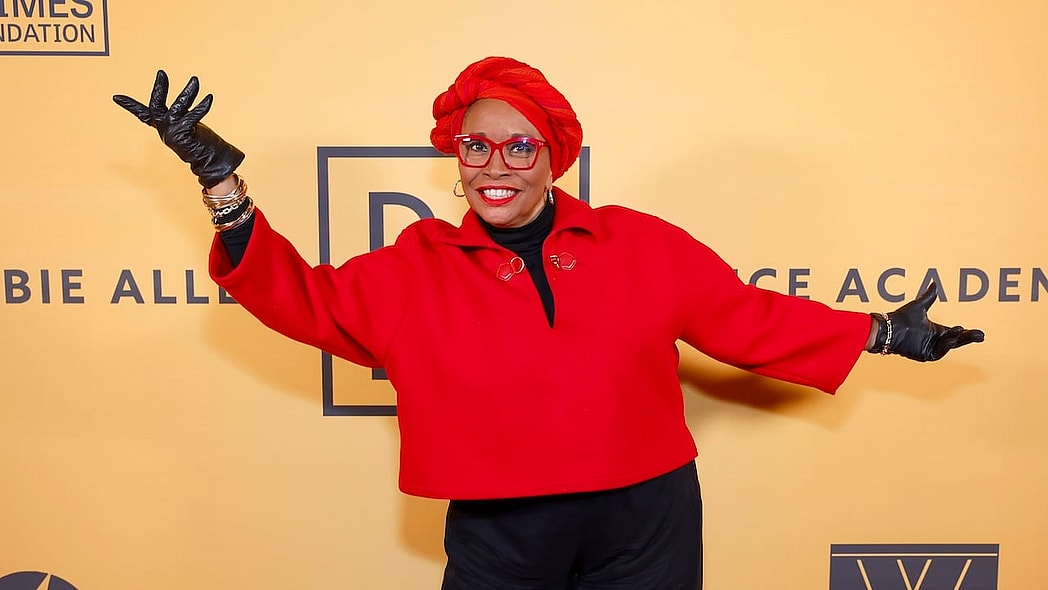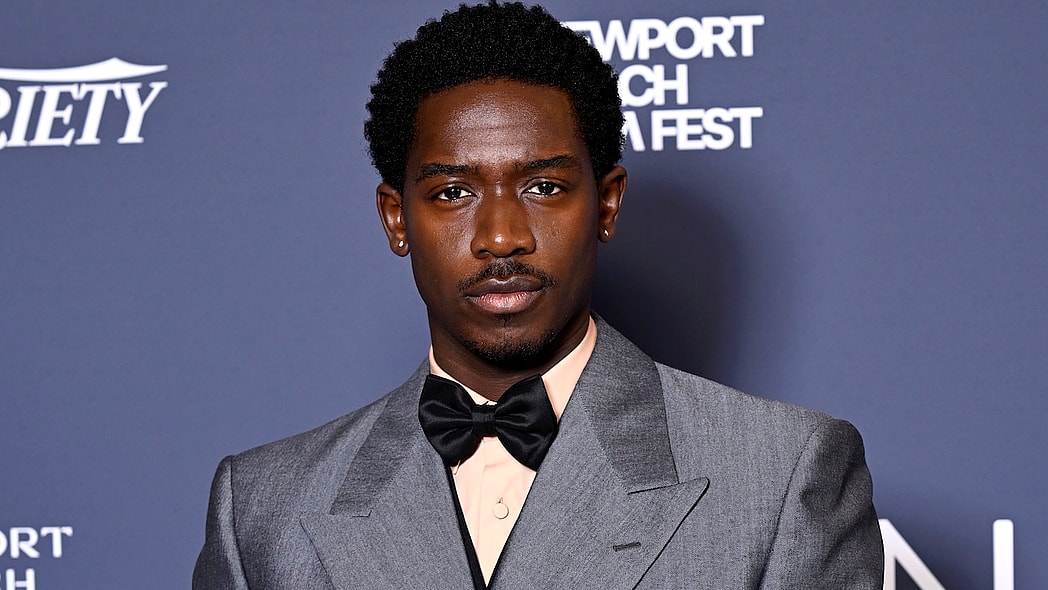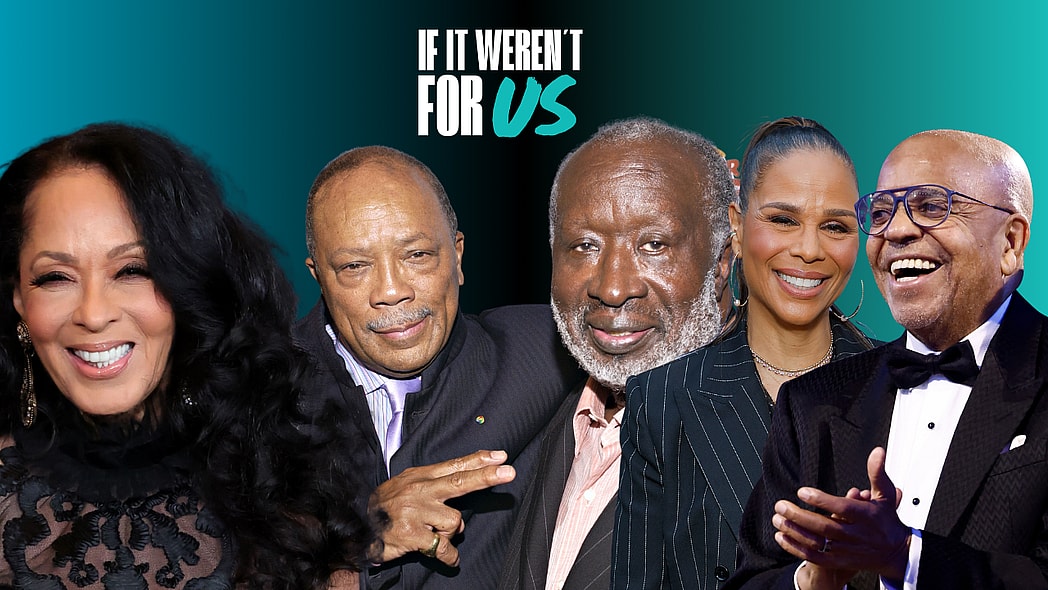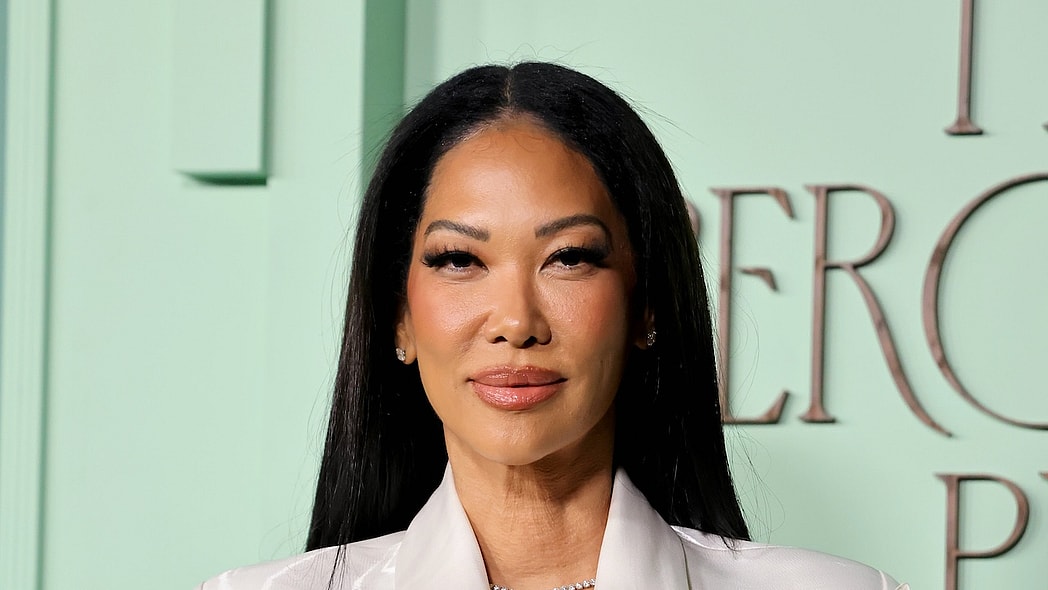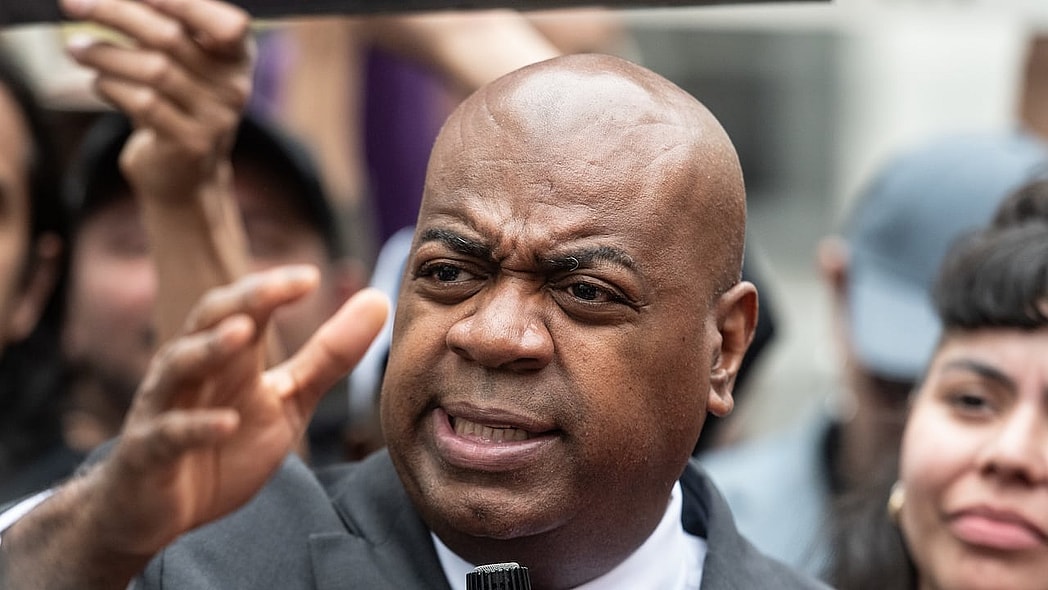Editor’s note: The following article is an op-ed, and the views expressed are the author’s own. Read more opinions on theGrio.
Ten years after Ferguson, and the police are still here. Little has changed, and policing still isn’t working out very well for us.
It is hard to believe that a full decade has passed since the police killed Mike Brown in Ferguson, Missouri, and the uprisings and protests that grew out of that. On Aug. 9, 2014, police officer Darren Wilson shot and killed the unarmed 18-year-old Brown. Wilson claimed he acted in self-defense and did not face prosecution.
Ferguson, a mostly Black city in St. Louis County, had a nearly all-white police force and a long history of institutional racism and the targeting and exploitation of Black residents. The U.S. Justice Department found the Ferguson Police Department and Municipal Court had a pattern of civil rights violations against Black people.
Ferguson was an inflection point for America. It was one of those “teachable moments” and an opportunity for the country to look itself in the mirror and see if we would blink. For Black Lives Matter, Ferguson was a catalyst that sparked the movement that blew up on social media and in the street. Young people got their education that summer and some were radicalized and mobilized to change the system that is snuffing, snatching, stacking and warehousing Black bodies.
The recent police killing of Sonya Massey — a Black Springfield, Illinois, woman who called 911 for help, only to be shot to death in the face by a problematic deputy named Sean Grayson after she rebuked him in the name of Jesus over a pot of hot water — demonstrates that the police have not changed a decade after Ferguson. Grayson, who like other abusive officers, was recycled throughout various police departments, is a feature of the system rather than a bug.
Law enforcement is not an example of a few bad apples, but rather a rotten institution that is performing as it was designed. Policing in America grew out of the enslavement and monitoring of African people on the plantation, the genocide and dislocation of Native Americans and the brutalization of workers in the name of protecting capital.
Recommended Stories
Violent and unstable officers, violations of civil rights and civil liberties, and the heavy-handed treatment of Black people, communities of color and those with low income are fundamental characteristics of policing. This is why protesters during the George Floyd summer of 2020 called for a defunding of the police and diversion of funding to social services, education, and programs of social uplift.
Instead of more police reform, we’re getting Cop Cities — urban warfare training centers popping up everywhere to teach cops to further brutalize Black communities, students and activists. Ten years after Ferguson, and four years after the death of Breonna Taylor and George Floyd, nothing has changed about policing, including the need to defund it.
Sadly, members of the Black elite have promoted the continued militarized occupation of police in Black communities and have stood in the way of change. Consider Rep. Tim Scott, R-S.C., who helped derail the George Floyd police reform bill in Congress. Atlanta Black politicos decided to take the bag and support the $90 million Cop City facility.
And consider Wesley Bell, the former public defender who became a Ferguson city councilmember in the wake of the Ferguson protests and later St. Louis County prosecuting attorney with progressive and activist support. Bell reportedly sold out his community, broke promises and failed to push reforms around racial justice and decarceration while in office. Further, Bell also dropped out of his U.S. Senate race and took a bag with $9 million in it from AIPAC and Republican anti-abortion and crypto billionaire donors to unseat Rep. Cori Bush, D-Mo. this week during Missouri’s primary. Bush is the Ferguson activist-turned-Congresswoman and Squad member who stands for the people.
As Malcolm X once said, “They will pay one of us to kill one of us, just to say it was one of us.”
Bell had said in 2014 that the real “tragedy” of the Michael Brown killing was that the prosecutors failed to share “the officer’s side of the story,” as Akela Lacy reported in The Intercept.
“I feel like he lied to us. He never brought charges against the killer,” said Mike Brown Sr., father of Michael Brown, about Bell in his role as prosecutor. “He never walked the streets of Ferguson with me. He failed to reform the office.”
“Black faces in high places are not going to save us,” as Ruha Benjamin of Princeton University told us.
But international solidarity will save us, particularly when we consider that police violence is a worldwide phenomenon. Ten years ago, Palestinians were connecting with Ferguson activists on Twitter and schooling them on how to protect themselves from the police tear gas — the same tear gas canisters manufactured in Pennsylvania that cops were deploying against Palestinians in the West Bank and Black folk in Ferguson.
Ten years later, college student protesters — including Black students — set up encampments and occupied university buildings to protest the genocide in Gaza and demand their schools divest from the Israeli military occupation of the Palestinians. These peaceful protesters — who moved in the spirit of the 1960s student antiwar activists and Martin Luther King, the movement against South African apartheid and the Movement for Black Lives — were regarded as criminals and terrorist sympathizers. The students were greeted with heavy-handed Gestapo police tactics, police snipers on the roof, arrests and suspensions.
Yet, when neo-Nazis and white supremacists march, police are seldom available to make arrests because … free speech, and in any case, police can’t arrest themselves.
When it comes to law enforcement, history repeats itself and we fail to learn its lessons. The urban rebellions in Watts, Detroit, Newark and elsewhere in the 1960s were the result of police brutality, as were the 1992 Rodney King uprising, the 2014 Ferguson uprising and the 2020 George Floyd protests. Ten years after Ferguson, nothing has changed because the fundamentals of institutional racism and policing in America have stayed the same.

David A. Love is a journalist and commentator who writes investigative stories and op-eds on a variety of issues, including politics, social justice, human rights, race, criminal justice and inequality. Love is also an instructor at the Rutgers School of Communication and Information, where he trains students in a social justice journalism lab. In addition to his journalism career, Love has worked as an advocate and leader in the nonprofit sector, served as a legislative aide, and as a law clerk to two federal judges. He holds a B.A. in East Asian Studies from Harvard University and a J.D. from the University of Pennsylvania Law School. He also completed the Joint Programme in International Human Rights Law at the University of Oxford. His portfolio website is davidalove.com.


